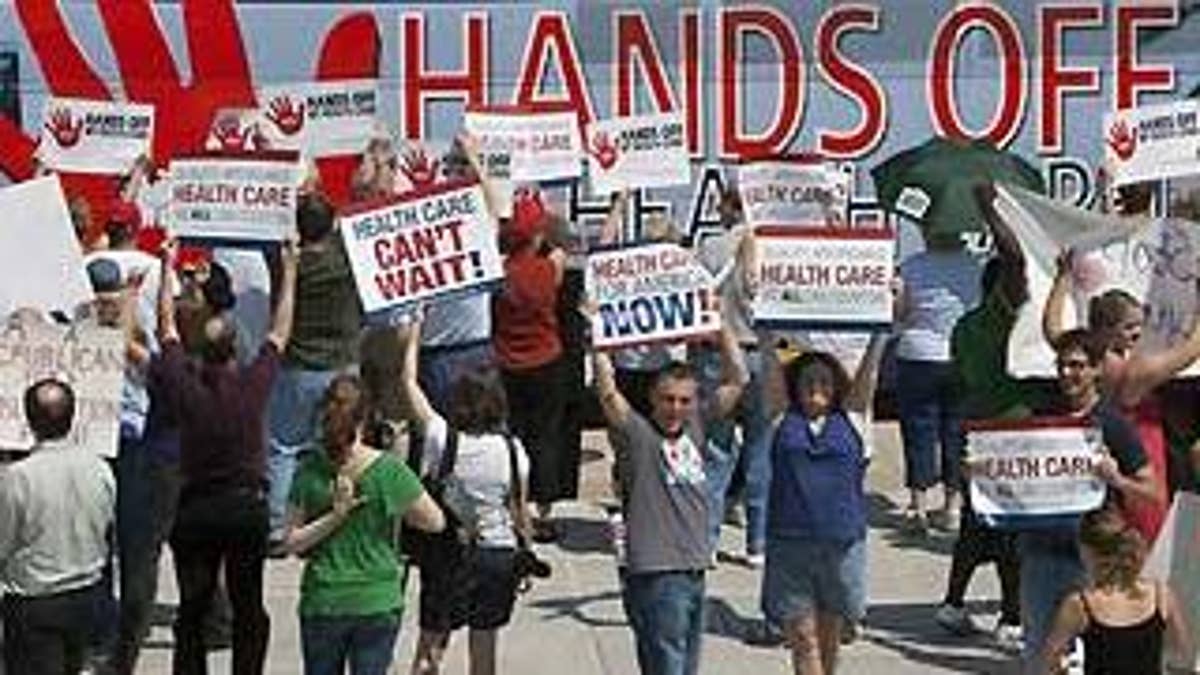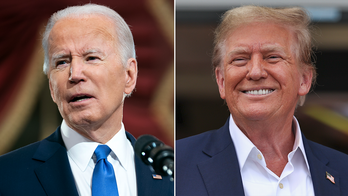
Several health care reform bills floating through Congress are unlikely to see the light of day, in part because chairmen of the congressional committees reviewing reforms have the latitude to decide which versions to consider and which to refuse to let come for a vote.
Dozens of bills that aim to fill in pieces of the health care puzzle are floating around Capitol Hill. From allowing seniors to open health savings accounts, to increasing access to cancer screening procedures, to improving end-of-life care, many bills have languished in House and Senate committees with no action taken on them.
Sen. Jim DeMint, R-S.C., on Sunday accused House Ways and Means Committee Chairman Charles Rangel of ignoring a "great plan" for health care by Republican Rep. Paul Ryan of Wisconsin.
"There are good ideas out here. The idea that we need a 'Fannie Med' in every state to compete with insurance companies is ridiculous," DeMint said on "FOX News Sunday," adding that his own Health Care Freedom Act would force interstate competition and give families who don't get employer insurance $5,000 a year to buy health insurance.
But Rangel said Ryan doesn't even have the support of fellow Republicans on the committee, and suggested that the GOP has merely criticized the health care proposals working their way through Congress without offering an alternative.
"I'm not saying that none of you guys have some idea. I'm saying you should come together with your leadership, compete with your ideas and at the end have a bipartisan national health insurance program," Rangel said.
Partisanship aside, several bills with bipartisan support have been offered and ignored. Among the dozens in the pipeline are legislation aimed at reducing the cost of private health insurance by pooling costs and a bill to expand states' authority over the disbursement of federal money.
Rep. Nydia Velazquez, D-N.Y., for instance, introduced a bill in February that provides for the establishment of cooperatives for small businesses to fund their health care plans.
Last week, Velazquez, chairwoman of the Small Business Committee, wrote House Energy and Commerce Committee Chairman Henry Waxman to ask that changes be made to the prevailing version being debated in order to relieve the burden on small businesses that would be forced to pay an 8 percent payroll tax if employees were placed into the government plan.
"According to the 2006 Census, the average annual payroll for employers with one to 4 employees was $286,987, while payroll of employers with 10 to 19 employees was $429,877," she wrote. "These numbers dramatically increase as the employer size gets closer to 100. As such, nearly all firms who have an employee will face the prospect of a fee if they fail to offer coverage."
The bill that passed Waxman's committee on Friday included an amendment by Blue Dog Democratic Rep. Mike Ross of Arkansas that allows an exemption on employers whose staffs earn less than $500,000, a 2 percent payroll tax for staffs making less than $585,000, a 4 percent tax for firms paying less than $670,000 and 6 percent on companies paying less than $750,000.
In a statement to FOXNews.com on Monday, Velazquez, who is also chairwoman of the Congressional Hispanic Caucus, said she hopes to achieve an effective health care reform bill.
"Working together, we can craft a measure that ensures access to quality coverage and reduces skyrocketing health care costs for small businesses. As health care legislation continues developing, I will work with my colleagues to ensure the final legislative product achieves these goals," she said.
In her letter to Waxman -- to which she has not yet received a reply -- Velazquez also noted that only firms with 20 employees or fewer will be guaranteed access to the government option. Suggesting that private options will be limited after the government option is placed into effect, Velazquez said many small firms would be excluded.
"These small businesses will have fewer choices for affordable coverage and little incentive to continue offering it," she wrote.
YOU DECIDE: Would You Pay Higher Taxes to Fund Health Care Reform?
Velazquez's bill never went through the committee vetting process. Neither did legislation by Rep. Marcy Kaptur, D-Ohio, who sponsored a bill with the support of Ohio Republican Rep. Steve LaTourette that would allow the Health and Human Services Department to grant waivers on states trying to implement policies to expand health care access.
Still more bills have been left in the referral stage, awaiting traction from a powerful chairman with an interest in the provisions.
On the Senate side, Sen. Max Baucus, D-Mont., chairman of the Senate Finance Committee, has denied a vote on a bill sponsored by Sens. Ron Wyden, a Democrat from Oregon, and Robert Bennett, a Republican from Utah.
The two first proposed the "Healthy Americans Act" two years ago. It would allow everyone in America to purchase their own insurance and everyone would be covered forever. Employers would face some new taxes but would no longer be required to provide health insurance.
The Congressional Budget Office has not only scored the plan as revenue-neutral in its first year, but found that within its first two years, it would actually "reduce future budget deficits or increase future surpluses." In other words, it would make money for the government.
The plan does require concessions from almost all sectors to make it work, and among the most vocal in opposition to it have been the labor unions. Their employees tend to receive a greater share of their compensation in benefits than wages.
The American Federation of State County and Municipal Employees, AFSCME, has run radio ads against Wyden in his home state, an action he said probably stems from fear of the unknown.
"I'm sure that like other groups they are seeing there ought to be changes, but not that would affect us. The reality is the typical working person and the typical member of the unions not only is not going to get their taxes increased under our legislation, they are going to get a tax cut," Wyden said.
In May, the Finance Committee held a hearing on reform. Asked by Wyden why the legislation won't be reviewed, Baucus responded, "That's just not going to happen."
Click here for more FOXNews.com coverage on health care.
FOX News' James Rosen and FOXNews.com's Sharon Kehnemui contributed to this report.




